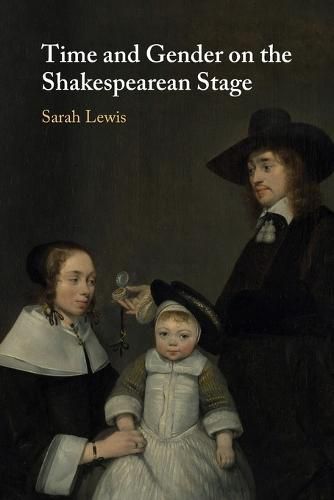Readings Newsletter
Become a Readings Member to make your shopping experience even easier.
Sign in or sign up for free!
You’re not far away from qualifying for FREE standard shipping within Australia
You’ve qualified for FREE standard shipping within Australia
The cart is loading…






This book analyses the cultural and theatrical intersections of early modern temporal concepts and gendered identities. Through close readings of the works of Shakespeare, Middleton, Dekker, Heywood and others, across the genres of domestic comedy, city comedy and revenge tragedy, Sarah Lewis shows how temporal tropes are used to delineate masculinity and femininity on the early modern stage, and vice versa. She sets out the ways in which the temporal constructs of patience, prodigality and revenge, as well as the dramatic identities that are built from those constructs, and the experience of playgoing itself, negotiate a fraught opposition between action in the moment and delay in the duration. This book argues that looking at time through the lens of gender, and gender through the lens of time, is crucial if we are to develop our understanding of the early modern cultural construction of both.
$9.00 standard shipping within Australia
FREE standard shipping within Australia for orders over $100.00
Express & International shipping calculated at checkout
This book analyses the cultural and theatrical intersections of early modern temporal concepts and gendered identities. Through close readings of the works of Shakespeare, Middleton, Dekker, Heywood and others, across the genres of domestic comedy, city comedy and revenge tragedy, Sarah Lewis shows how temporal tropes are used to delineate masculinity and femininity on the early modern stage, and vice versa. She sets out the ways in which the temporal constructs of patience, prodigality and revenge, as well as the dramatic identities that are built from those constructs, and the experience of playgoing itself, negotiate a fraught opposition between action in the moment and delay in the duration. This book argues that looking at time through the lens of gender, and gender through the lens of time, is crucial if we are to develop our understanding of the early modern cultural construction of both.